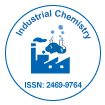当社グループは 3,000 以上の世界的なカンファレンスシリーズ 米国、ヨーロッパ、世界中で毎年イベントが開催されます。 1,000 のより科学的な学会からの支援を受けたアジア および 700 以上の オープン アクセスを発行ジャーナルには 50,000 人以上の著名人が掲載されており、科学者が編集委員として名高い
。オープンアクセスジャーナルはより多くの読者と引用を獲得
700 ジャーナル と 15,000,000 人の読者 各ジャーナルは 25,000 人以上の読者を獲得
インデックス付き
- 索引コペルニクス
- Google スカラー
- レフシーク
- 研究ジャーナル索引作成ディレクトリ (DRJI)
- ハムダード大学
- エブスコ アリゾナ州
- OCLC-WorldCat
- 学者の舵取り
- ジュネーブ医学教育研究財団
- ユーロパブ
役立つリンク
オープンアクセスジャーナル
このページをシェアする
抽象的な
Assessing Ethanol, Isopropyl Alcohol, and Methanol in Alcohol-Based Hand Sanitizer: Ensuring Quality and Safety
Mustafa Soylak
The unprecedented global pandemic of Coronavirus Disease-2019 (COVID-19) has sparked serious public health crises. One of the World Health Organization's recommendations for reducing the transmission of COVID-19 is to practice good hand hygiene, which includes either washing one's hands with soap and water or disinfecting them with an alcohol-based hand sanitizer (ABHS). Unfortunately, competing ABHSs flourished with unknown efficacy, safety, and quality, posing a further threat to consumers. The objective of this study is to develop an analytical technique based on gas chromatography-mass spectrometry (GC–MS) for simultaneously identifying and quantifying ethanol or isopropyl alcohol as the active ingredient in ABHS and methanol as an impurity. Chosen Particle Checking was chosen as the information obtaining procedure for quantitation, and the GC-MS was utilized in Electron Ionization mode. The analytical method was tested for specificity, linearity, range, accuracy, and precision, including the detection and quantification limits, for liquid and gel ABHSs. To determine the specificity of each target analyte, the best chromatographic separation with distinct quantifier and qualifier ions was used. The linearity was determined using a coefficient of determination (r2) greater than 0.9994 over the specified range. Individually, the precision and exactness were within 98.99 and 101.09% of the overall standard deviation, respectively, and below 3.04%. 14 of the 69 ABHS samples used to test the method did not contain enough of the active ingredient. Four samples had an alarmingly high percentage of methanol in their active alcohol percentage, ranging from 5.3 to 19.4 percent. Customers' short- and long-term health may suffer as a result, and their lives may be in jeopardy. The established method would be beneficial in protecting the public from potential harm resulting from unsafe or substandard ABHS products because of the presence of dangerous impurities like methanol.

 English
English  Spanish
Spanish  Chinese
Chinese  Russian
Russian  German
German  French
French  Portuguese
Portuguese  Hindi
Hindi